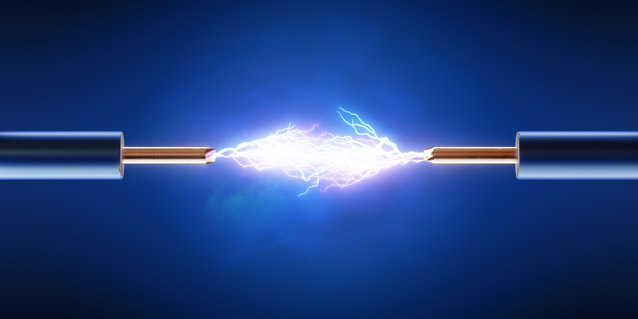EMA License: 9/21140 | Open 9am - 6pm | Monday to Saturday | Call 84193988

5 Reasons Why Your Power Outlets are Sparking
If you’ve ever experienced an electrical spark, you may have had quite the scary experience. Whether your outlets started sparking due to a power surge, or because you have a powerful device plugged in - the results are terrifying all the same. When you experience a sparking outlet, you may be in danger, and it’s best to hire an electrician to assess the problem right away and get electrical repair done. But if you notice some sparks, don’t panic - there are several reasons why this may be occurring.
Below are 5 of the main reasons why your power outlets are sparking. You can identify what kind of electrical problem you are having by determining the reason for your sparking. Check the list below to see if any of them apply to you.
1. Short Circuiting
Your outlets may be short circuiting enough to cause sparks in your outlets. The reason this happens is because a lot of heat can build up in the outlet and start to melt the insulated padding off of the wires. The electricity running through these wires can be the spark that starts a fire. Sparks are often the sign of a powerful and raw electric connection.
2. Lack of Repairs
Unfortunately, homeowners have to deal with botched repairs every once in a while. This can happen when someone without the experience or ability to perform a job tries to repair your electrical system, which can often result in far more problems than you originally had. Negligent repairs can cause your outlets to spark because your electrical systems aren’t properly hooked up.
It can be frustrating dealing with an ignorant repair person. It’s best that you contact a professional and certified electrician right away so that you can ensure that your repairs are done right every time.
3. Water Exposure
If your electrical circuits are exposed to water at any point in time, they will certainly cause a wide range of issues. Exposure to water can cause a short circuit, and will trigger sparks. In most cases, a GFI outlet will shut down as soon as it detects water. If a circuit continues to run with water exposure, it can start an electrical fire, which will spread rapidly and pose extreme dangers to the home and residents.
Most circuit breakers are in place to automatically turn off your circuits if there is an electrical fire. However, you must take extra caution to be sure that your outlets cannot be exposed to water in any way.
4. Age Exposure
Outlets don’t last forever. After some periods of time, your outlets will start to wear out. This will cause electrical connections to loosen and melt, which increases the risk for a short circuit. This can cause electrical sparks to run through the active wires, which may trigger an electrical fire. Be sure to have your outlets checked and maintained regularly to avoid this scenario.
If your outlets are cracked, melted, worn, or loose, you should not risk using them again. Instead, turn off the circuit that is connected to that outlet and give your ele ctrician a call to have those outlets replaced and secured right away.
5. Sometimes, Sparks are Just Sparks
Believe it or not, sometimes sparks just happen. If there isn’t a dangerous electrical reason, such as a short circuit due to water or age damage, then sparks can just come naturally.
Since electricity typically runs along circuits, the are all connected to a main grid which supplies power to all areas of your house. If a certain appliance or device is plugged into the circuit, it always has a chance to trigger a spark. Electricity moves extremely fast, and it is also extremely hot. When you plug something in, you are accessing that connection. When you quickly draw power like that, it can cause a spark. But this is no more harmful than a static electric shock. While you may feel it, or see it, you should not be alarmed by its presence - this is a completely normal type of spark.